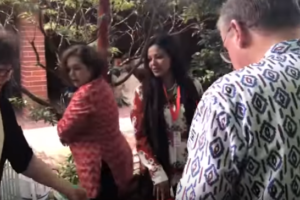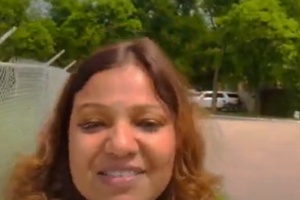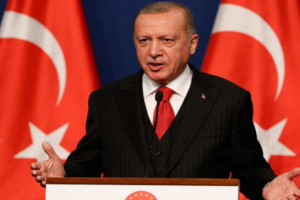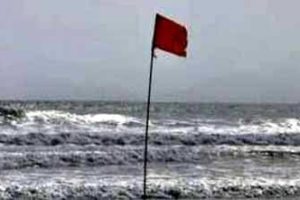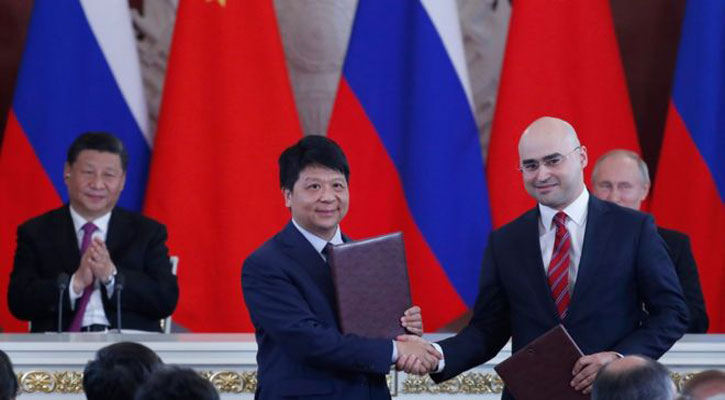In a choked voice, Parasuram Maurya described desperately running from one hospital to another to save his father from Covid-19.
Sundar Maurya, a farmer from the south-western town of Narainapur, complained of breathing difficulties and tested positive on 3 May. Within days, his condition worsened.
Mr Maurya took his father, who is in his mid-50s, to three medical facilities in the Banke district but all refused him admission due to a shortage of beds and oxygen. By the time he managed to find a bed, it was too late.
“We are devastated, he was the main breadwinner of the family,” Mr Maurya told the BBC. “Now I have to take care of my own family and three younger brothers. My mother has been crying inconsolably.”
Thousands of people like Mr Maurya have lost their loved ones in Nepal, a nation now reeling from a second wave of the virus.
“If we don’t manage this right now, the situation will become catastrophic,” said Dr Samir Kumar Adhikari, the chief of the government’s Health Emergency Operation Centre.
“In Kathmandu valley, almost all of the intensive care beds and ventilators are full,” he said. “Even in hospitals where beds are available, they cannot admit patients due to a lack of oxygen. We have also run out of vaccines.”
Nepal, a Himalayan nation of about 30 million people, is one of the least developed countries in the world. Landlocked and sandwiched between China in the north and India in the south, it depends on India for most of its supplies, especially medical equipment and liquid oxygen. With India stopping exports of oxygen due to the worsening situation there, Kathmandu is now struggling to find alternative supplies.
Like many other Asian nations, Nepal somehow managed to escape the first wave without any serious damage. But the second wave has been devastating. Daily infections hovered at around 150 at the beginning of April but in a month the figure has passed 9,000. More than 4,000 people have died.
Nepali health officials say the current daily positivity rate is nearly 50%, meaning that one in two people are testing positive for Covid. An estimated 80,000 people are in home isolation, and officials are warning of many more deaths in the coming weeks.
“We rank Nepal 9th among the 10 top countries in terms of daily increase in Covid-19 cases. Of all those countries, Nepal has the smallest population but it has the highest case positivity rate,” Sara Beysolow Nyanti, the UN resident co-ordinator in Nepal told the BBC.
Like in neighbouring India, normal life had begun to resume a few months ago when daily cases fell below 100. The country was in a hurry to get back to normality in order to recover from the economic impact of the lockdowns. Masks, sanitation and social distancing were ignored.
At the same time, Nepal was hit by a political crisis. Prime Minister K P Sharma Oli, facing rebellion in his own party, dissolved parliament last December and called for a snap election. But the Supreme Court reinstated parliament in February this year.
Mr Oli was also facing criticism from the opposition and civil society over the government’s handling of the coronavirus. There have been pro- and anti-Oli protests in Kathmandu and other parts of the country.
Prime Minister K P Sharma Oli lost the vote of confidence in parliament on Monday. It’s not clear who will form the next government, with no party having a clear majority.
Experts blame the political wrangling and infighting for the sharp turn for the worse in the pandemic.
“The politicians were busy trying to hold on to power, their attention was not on the health of the people but on retaining power,” said Dr Rajan Pandey, chief consultant physician at Bheri hospital, in Nepalgunj city.
Nepalgunj, near the border with India, is one of the worst affected regions in Nepal. Every day, hundreds of migrant workers from India are returning through the land border amid fears that some of them may be carrying the virus. Fearing quarantine, many enter the country illegally and go to their villages. There are reports of some of the returnees falling sick.
But migrant labourers alone should not be blamed for the second wave, said Dr Pandey.
“Two months ago, the government and the opposition held huge rallies all over the country. People celebrated religious festivals and organised marriage ceremonies – all contributing to this second wave,” he said.
The situation has been exacerbated by the fact that Nepal has now suspended its vaccination programme after it ran out of doses. Initially, India donated about a million doses of AstraZeneca vaccine, and Nepal secured doses from the global vaccine sharing programme Covax and from China.
Officials in Nepal say altogether 2.1 million people have had the vaccine and out of that number 400,000 have received both doses.
But with Delhi abruptly suspending the export of vaccines, Nepal is in limbo, alongside Bangladesh and Sri Lanka, increasingly looking to China and Russia to meet their demands.
“Nepal has not been able to secure vaccines for even 20% of those who need to be vaccinated. So, Nepal should be prioritised at the top,” the UN official Ms Nyanti said. “I appeal to the countries which can spare vaccine to send them to Nepal immediately.”





